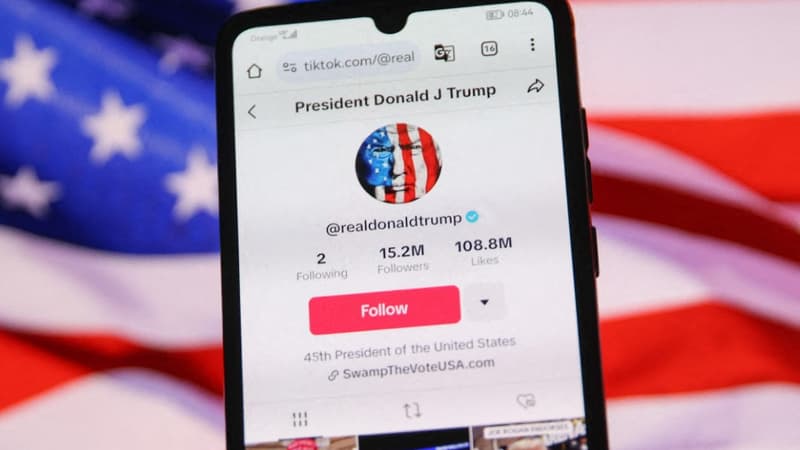When Donald Trump has an idea, he does not stop leaving it easily. On Thursday, when the agreement was signed on the sale of American activities of Tiktok, the US president took the opportunity to declare that he had “saved” the request. Not without a joke, at least in appearance, he added that he would like to modify his algorithm so that the content becomes “100 % magic.”
But “everyone will be treated fairly,” he said, leaving doubts. However, his opponents see it as a disturbing sign: Tiktok, once under American control, could be politically oriented, like Twitter that became X after his acquisition of Elon Musk.
The new participation of the platform goes in this address: the participants of the capital of Tiktok are all allies of Donald Trump, while the Chinese parent company is now … in a minority position.
Investors close to the president
The Guardian recently investigated this media recomposition. According to daily life, the participation of figures such as Rupert Murdoch or Larry Ellison could “give Trump’s billionaire allies considerable and unprecedented control over the US media,” which allows them to transform “the most influential social network in the country” into a new political resonance fund.
For his part, Trump, of course, denied any conflict of interest and assured that the concluded agreement met the legal requirements: force Tiktok to renounce their US assets and ensure that the user data is no longer accessible from China, to protect the data of China’s Americans.
On an information sheet, published on the White House site, the US president even proclaimed himself “found a solution for the 170 million Americans who use Tiktok, guaranteeing users the same global Tiktok experience and consults with the content of the whole world, with the assurance that their data is secured in the United States.”
A pro-trump algorithm?
But reality is more complex. The new US owners do not directly buy the Tiktok algorithm: they get a byedance license, Mother House China, and must include it again in local data. A risky process, according to several experts, which could degrade the quality of the recommendations and bring users to other platforms if the application loses efficiency.
Another fragility of the agreement: the direct participation of the US government. According to the New York Times, investors discuss a payment of several billions of dollars in federal transactions costs, while the Wall Street Journal evokes the probable presence of a government representative on the Tiktok US Board of Directors. A perspective that could cool some of the creators and their communities.
The Think appreciates the “Cato Institute”, cited by the specialized media Ars Technica, explains that “the government’s participation in global commercial decisions and comments that indicate that they could request a possible reduction in the agreement could also create a worrying precedent.” Therefore, this could open the possibility that the Government use the law on the prohibition or sale of Tiktok to take part of the rights and exert an influence on other precious applications.
Source: BFM TV


